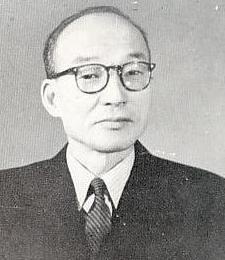Yun Chi-young facts for kids
Quick facts for kids
Yun Chi-young
윤치영 |
|
|---|---|
 |
|
| 1st Minister of the Interior | |
| In office 15 August 1948 – 15 December 1948 |
|
| President | Syngman Rhee |
| Preceded by | Politic Open |
| Succeeded by | Shin Sung-mo |
| 13th Mayor of Seoul | |
| In office 17 December 1963 – 30 March 1966 |
|
| Preceded by | Yun Tae-il |
| Succeeded by | Kim Hyon-uk |
| Personal details | |
| Born | 10 February 1898 Seoul, Joseon Dynasty |
| Died | 9 February 1996 (aged 97) Seoul, South Korea |
| Political party | Korea Nationalist Party (1948–1958) |
| Other political affiliations |
Lee Byung-young(1907–1923) Lee Eun-Hye (1924–1980) |
| Alma mater | American University, United States |
| Profession | Civil Servant Activist diplomat |
| Signature | |
| Yun Chi-young | |
| Hangul | |
|---|---|
| Hanja | |
| Revised Romanization | Yun Chi-yeong |
| McCune–Reischauer | Yun Chi'-yŏng |
Yun Chi-Young (윤치영, 尹致暎) was an important person in South Korea's history. He was born on February 10, 1898, and passed away on February 10, 1996. He was an activist who fought for Korea's independence. He was also a journalist, a politician, and a diplomat.
Yun Chi-Young held many important jobs. He was the first Minister of the Interior in 1948. He also served as South Korea's Ambassador to France from 1950 to 1951. He was a member of the National Assembly for three terms. Later, he became the 13th Mayor of Seoul, serving from 1963 to 1966.
He studied in the United States. During the time Japan ruled Korea, he worked closely with Syngman Rhee. Rhee later became the first president of South Korea. Yun Chi-Young was Rhee's chief secretary. He worked hard for Korea's freedom. He helped with independence groups in America and Europe. He also started a newspaper called Samilshinbo. Because of his independence work, he was arrested and spent some time in prison.
After Korea became free in 1945, Yun Chi-Young continued to work with Syngman Rhee. He was Rhee's secretary and a leader in a political group. When the South Korean government was formed in 1948, he became the Minister of the Interior. He also served as the Deputy Speaker of the National Assembly.
In the early years of Syngman Rhee's presidency, Yun Chi-Young was a very powerful figure. He also worked as a special diplomat for President Rhee. In 1948, he started the Korea Nationalist Party. This party supported Rhee. He tried to become vice president in 1956 and 1960 but did not win.
Later, he joined the military government after a big change in leadership in 1961. In 1963, he supported Park Chung-hee to become president. He then served as Mayor of Seoul and led the Democratic Republican Party. After 1968, he believed Korea needed a strong leader for economic growth. He strongly supported Park Chung-hee staying in power for a third term. Yun Chi-Young was a Protestant and served as a church elder. He stopped working in politics in 1980.
Yun Chi-Young was the younger half-uncle of Yun Bo-seon. Yun Bo-seon later became the second president of South Korea. Yun Chi-Young was also a cousin of the famous politician and independence activist Yun Chi-ho. His special pen name was Dongsan.
Political Career and Influence
Yun Chi-Young was a close helper and secretary to Syngman Rhee. His main goal was to support Rhee's efforts for Korea's independence. He strongly opposed Japanese rule. He believed Rhee was the right leader for Korea.
From August to December 1948, he served as the Interior Minister of South Korea. He also worked as an Ambassador to the United Nations. From 1951 to 1952, he was the second Ambassador of the Republic of Korea in France.
He was a key figure in the early South Korean government. He helped shape the country's direction after it gained independence. He had different political ideas than his nephew, Yun Bo-seon. Yun Chi-Young joined the Korea Democratic Party at first. But he later left it to create the pro-Rhee Korea Nationalist Party. This helped keep other political groups in check.
After 1961, he supported Park Chung-hee. He advised Park on important matters, including social security. He continued to be an influential figure in Korean politics for many years.
Images for kids
-
Syngman Rhee and Yun Chi-young (1945. 10. 16)
See also
 In Spanish: Yun Chi-young para niños
In Spanish: Yun Chi-young para niños
- American University
- Syngman Rhee
- Park Chung-hee
- Yun Bo-seon
- Seo Jae-pil
- Yun Chi-ho
- Chinilpa
- Yun Chi-Oh
- Heo Jeong
- Chang Myon
- Kim Seong Su
 | John T. Biggers |
 | Thomas Blackshear |
 | Mark Bradford |
 | Beverly Buchanan |



